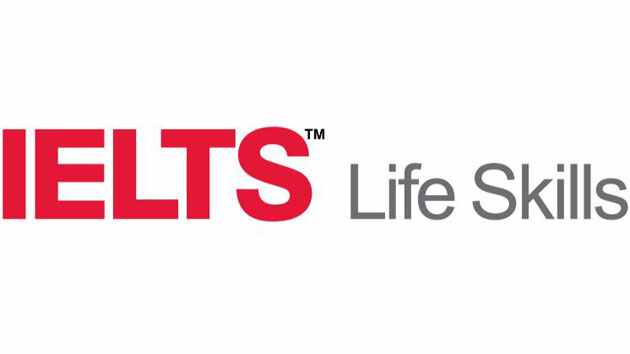A recent survey disclosed that 70% of construction professionals acknowledge the critical role of continuous education in advancing their careers. This figure underscores the increasing value placed on ongoing learning within the construction realm. As the industry evolves, staying updated with the latest knowledge and skills becomes indispensable. This article explores the significance of ongoing education for construction professionals, examining its influence on career progression, safety, and adherence to industry standards.
The Evolving Landscape of Construction
The construction sector is constantly evolving, driven by rapid advancements in technology and shifts in regulations. As new construction methods and materials emerge, industry professionals must stay informed. For example, the adoption of Building Information Modelling (BIM) has dramatically altered project management and design methodologies. Those who do not adapt to such changes risk being left behind.
Updates in regulations necessitate that professionals regularly refresh their knowledge to remain compliant. Building codes and safety protocols are frequently updated to improve both safety and operational efficiency. By staying informed about these revisions, professionals ensure they apply them effectively. This adherence not only aids in compliance but also enhances the quality of the projects delivered.
Keeping current is equally essential for maintaining a competitive stance in the job market. Today, employers favour candidates who are not only experienced but also knowledgeable about the latest trends in the field. Continuous learning offers professionals a significant advantage, increasing their appeal to prospective employers and clients.
Enhancing Skills and Career Prospects
The pursuit of continuous education serves as a gateway to improving one's abilities, particularly as industries evolve. For instance, delving into sustainable building practices not only diversifies a professional's expertise but also positions them at the forefront of the burgeoning green construction sector. Such an expansion of skills enriches a professional's toolkit and enhances their adaptability in a dynamic work environment.
Moreover, career progression is a notable advantage of ongoing educational endeavours. Professionals dedicating time to further their knowledge are often prime candidates for promotions and assume pivotal leadership positions. This dedication to growth is highly prized by employers, signalling a proactive approach to personal and professional development. Thus, continuous learning is a strategic move to ascend the professional hierarchy.
Enhanced job performance naturally follows from regular learning. Professionals equipped with up-to-date knowledge and skills tend to perform their duties with greater proficiency and innovation. This not only leads to improved project results but also boosts client satisfaction, paving the way for a more illustrious career. Investing in continuous education, therefore, is investing in a prosperous future.
Continuous Education
Kyrillos Ghaly stands as a testament to the transformative power of consistent education in the construction realm. Launching his career in 2017, he quickly grasped the critical role that continual learning plays. His academic path began at the Australian Qualification College, where he earned both a Diploma and a Certificate IV in Building and Construction, laying a robust foundation for his burgeoning career.
By 2019, Kyrillos had escalated his educational pursuits, securing a Diploma and a Graduate Certificate in Building Surveying from Western Sydney University. This higher academic achievement enabled him to manage increasingly intricate projects and responsibilities. His dedication to education extended beyond degrees; he joined the ranks of the Australian Institute of Building Certifiers and the Association of Australian Certifiers, keeping abreast of the latest industry standards.
Now serving as a Director at Building Certifiers Pty Ltd, Kyrillos works closely with clients, consultants, and councils to ensure projects align with legislative standards. His educational odyssey underscores the link between continuous learning and career progression and serves as a beacon of inspiration for his peers in the construction industry, encouraging them to deepen their educational investments.
.jpg)
Industry Organisations Leading the Way
In the realm of construction, industry organisations are crucial in championing ongoing education for professionals. Master Builders Australia, for example, spearheads numerous initiatives and programs aimed at broadening both the skills and knowledge of their members. These offerings are comprehensive, spanning from enhancing technical capabilities to cultivating leadership qualities, ensuring that professionals are versatile and proficient.
Furthermore, Master Builders Australia extends a wealth of resources and support to those eager to advance their educational pursuits. This includes providing access to a variety of workshops, seminars, and online courses. Through these educational avenues, the organisation plays a crucial role in keeping professionals informed of the most current industry trends and superior practices, benefiting not just the individuals but the construction sector at large.
Additionally, there is significant collaboration between industry organisations and educational institutions to craft specialised courses and certifications. These cooperative efforts guarantee that the educational offerings are both pertinent and contemporary. By nurturing an environment dedicated to continual learning, entities like Master Builders Australia are instrumental in driving the growth and evolution of the construction industry.
Leadership in Education and Inclusion
Since taking the helm at Master Builders Australia in 2017, Denita Wawn has shattered glass ceilings as the first woman to lead the organisation in its 127-year history. Her tenure is marked by a strong push towards continuous education and professional development, aiming to reshape the construction industry's landscape.
Denita has been a cornerstone in bridging the gap between employers, educational institutions, and women, encouraging a surge in female participation in construction. With women currently representing just 10% of the industry's workforce, her vision extends to boosting this figure to 25% over the next ten years. Her strategies are designed to cultivate a workforce that mirrors the diversity and inclusivity needed for the industry to thrive.
Under her guidance, Master Builders Australia has rolled out numerous initiatives to sharpen skills and expand knowledge across the industry. These programs serve not only the professionals within the industry but also spearhead the overall sector's advancement. Denita's unwavering dedication to education highlights its pivotal role in nurturing a competent and diverse workforce.
Navigating Educational Pathways
For those in the construction field, charting a course through the variety of educational and certification options can seem overwhelming. Yet, a clear grasp of the choices available can simplify this journey. Educational institutions offer a spectrum of programs, from brief workshops to extensive degree courses, encompassing everything from hands-on technical prowess to comprehensive project management.
Pursuing certifications can also be a strategic move. These credentials serve as a formal endorsement of your skills and knowledge, enhancing your appeal to potential employers. Esteemed certifications like the Certified Construction Manager (CCM) or the Project Management Professional (PMP) are particularly valued within the industry. Obtaining such certifications can markedly improve your career trajectory and open doors to new possibilities.
When selecting educational routes, it's crucial to align them with your career ambitions and personal interests. Opt for courses and certifications that resonate with your professional objectives. Moreover, consulting mentors or industry bodies can yield deep insights. By judiciously choosing your educational pursuits, you can fully leverage the advantages of ongoing learning.
Financial Considerations of Continuous Education
Delving into continuous education requires a financial strategy, yet the rewards often eclipse the initial expenditures. The costs—ranging from tuition fees and study materials to potential income loss during study breaks—necessitate careful budgeting and planning. Fortunately, various scholarships and financial aid are available through educational bodies and industry organisations, easing the financial strain.
The financial yield from investing in ongoing education is impressive. Upgrading one’s skills and knowledge typically results in elevated salaries and enhanced career prospects. Those who commit to further education are generally poised for upward professional mobility and greater economic security. Viewing these expenses as an investment can reframe them as stepping stones to greater future earnings.
Additionally, many employers actively support their employees’ educational growth through various means such as tuition reimbursement, paid time off for study, or funding for professional certifications. Leveraging these benefits can significantly diminish the cost of further education. In the grand scheme, the enduring financial advantages of continuous learning make it an astute investment.
Safety and Compliance
In the realm of construction, the foundation of maintaining a secure and compliant workspace is continuous education. Professionals need to stay informed about the latest safety protocols and standards. This knowledge empowers them to spot potential hazards swiftly, thereby diminishing the chances of workplace accidents and injuries.
Adherence to evolving building codes and regulations is equally imperative. These standards are regularly revised to boost both safety and operational efficiency. Through ongoing education, construction experts stay informed about these updates, ensuring they are implemented accurately. This commitment not only upholds regulatory compliance but also elevates the quality of the projects delivered.
The advantages of a safer workplace extend across the board, resulting in fewer accidents, reduced insurance premiums, and enhanced employee morale. By prioritising continuous education, construction professionals foster a safer, more compliant industry. This dedication not only bolsters the sector’s reputation but also its credibility. As noted by Sergio Perez, Chief Operations Officer, "This building will be net-zero, carbon-neutral, well-ventilated and high-energy efficient, ensuring it does not contribute to carbon emissions."
Building a Professional Network
Engaging in continuous education opens doors to a thriving professional network. By participating in various courses, workshops, and seminars, professionals not only enhance their skills but also forge valuable connections with peers, mentors, and industry leaders. These relationships are essential, paving the way for new job prospects, collaborative endeavours, and the exchange of crucial knowledge—all vital components for career advancement.
Networking extends beyond mere connections; it is a gateway to a treasure trove of industry insights and knowledge. Engaging with fellow professionals allows one to stay informed about the latest trends, adopt best practices, and get acquainted with cutting-edge technologies. This ongoing learning through networking makes continuous education a dual-purpose platform that significantly boosts one’s competitiveness and efficacy in their field.
Moreover, a robust professional network offers more than opportunities; it provides a support system. Mentors and colleagues contribute advice, share their experiences, and offer encouragement, helping one navigate through the myriad challenges and opportunities the industry presents. Establishing a strong network not only enhances career prospects but also sets the stage for sustained success in one’s professional journey.
Lifelong Learning for Success
In wrapping up, the clear value of ongoing education within the construction realm is evident. As this industry transforms, staying updated with the latest advancements in knowledge and skills becomes indispensable for career progression, ensuring safety, and adhering to regulations. The advantages of continuous learning are manifold, ranging from enhanced skills and career growth to better job performance and financial security.
Figures such as Denita Wawn are pivotal in championing lifelong education and nurturing a capable, diverse workforce. Construction professionals, by investing in their ongoing education, remain agile and proficient amidst the industry’s dynamic landscape. The long-term professional and financial gains from continuous learning significantly surpass the initial investments, establishing it as a sound decision.
Ultimately, the commitment to lifelong learning stands as a cornerstone for a thriving career in construction. By keeping well-informed and adept, professionals are equipped to tackle the industry's challenges and seize opportunities, fulfilling their career aspirations and driving the sector’s growth and innovation.

.jpg)





.jpg)